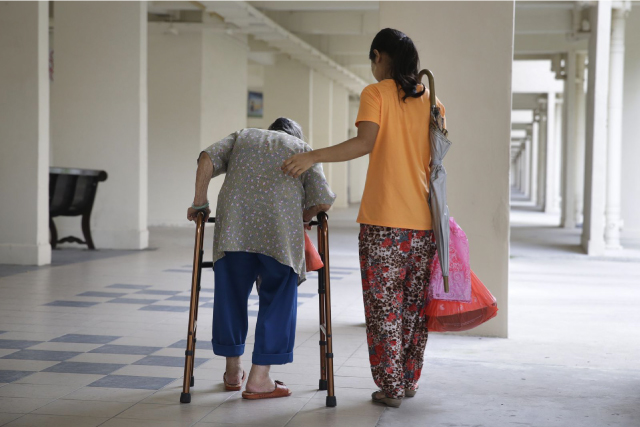
There are risks in every job and while we take the necessary precautions to make sure we are well-protected, such as scrutinising the employment contract and checking out the work environment during the interview, the migrant workforce in particular such as foreign domestic workers (FDWs) do not have the same luxury. Foreign domestic workers clean, cook, care for our kids, look after our elderly family members, performing many essential tasks so that we can focus on our own jobs. Despite their important role, they are among the most exploited and abused workers in Singapore.
Employed to work in private households, they are often clueless about the actual conditions of the family that they will be working for until the day they start work. At the mercy of the country’s legislation that may or may not offer adequate protection and social security, the lack of portability of work visas bind them to their employers, giving great power to employers who could revoke their work permits at will. Because of the huge debts they had assumed to recruitment agencies or individual recruiters in their home countries or Singapore when they first arrived here, FDWs fear reporting their abuse lest they get repatriated. Some FDWs work seven days a week, are denied a rest day even when they are sick, and have minimal contact with the outside world. They also face high risks of physical and sexual violence in these private premises, and are forced to comply by means of reduction of salary, illegal withholding of their pay and passport and other punishments such as denial of food when they make mistakes.
In a recently published Straits Times article, we hear of a Myanmar national Ms Than Than Soe who was severely abused and mistreated by her employer, till she was almost blind. Not once was she ever paid her salary throughout the 2 years’ of service. The authorities have found the employer guilty of assault and abuse, and have sentenced her to 20 months of jail.
Yet many women continue to migrate for domestic work despite the unknowns and potential risks because of the pressing financial needs at home. Further exacerbated by the scarce job options back home, they see incredible opportunities to provide a better life for their families, and earn much higher wages.
The abuse and exploitation that domestic workers experience can be extremely distressing and traumatic. With the goal of extending our existing trauma recovery care and empowerment support for trafficking survivors to other vulnerable communities in Singapore, HAGAR has been working with foreign domestic workers who have been exploited and abused – helping survivors rebuild their self-worth and improve their self-sustainability.
In 2017, according to the Ministry of Manpower, there were close to 250 thousand foreign domestic workers in Singapore! And since 2012, there has been a steady increase in this workforce.
As far back as 2009, there have been instances of abuse being reported in the media, where an Indonesian domestic worker was tortured and physically abused by her employers. The penalty then was a one-year jail term and $1,000 fine. And for maliciously threatening their Indonesian domestic worker and subjecting her to prolonged periods of physical abuse, a couple was sentenced to jail terms of eight and six weeks – a seemingly meagre penalty for the trauma that had been inflicted.
Following revisions to the regulations in 2012, a shocking abuse of a Filipino domestic worker saw her physical weight literally shrink by half because of the malnutrition she suffered. The penalty was a 12-month jail term and $10,000 fine. In 2013, a Burmese domestic worker suffered multiple counts of rape when she was left alone at home with her employer.
These are just some of the reported cases that get featured in the media. But how many more are there suffering under the hands of errant employers who have no qualms about subjecting fellow humans to torture, abuse, violence and sexual exploitation? The trauma that these survivors face is immense!
Underaged girls have also been recruited by agencies who neglect verifying identification documents and rely solely on overseas agents. Often, these agents target girls with little to no education, promising a good salary and offer to oversee the administrative process. By the time these young girls realise what they are in for, it will be too late to turn back as they have already arrived in a foreign country with a service bond that they have to work to pay off.
There can certainly be further improvements in offering protection to these foreign workers, and increasing the awareness among Singapore employers on the recruitment tactics by unscrupulous agents.
As fellow human beings, we all have a role in making this world a fairer place where every person is treated with equal respect and dignity. A basic responsibility, especially for us, living in a first world country.
Help us transform lives
Join HAGAR to empower survivors of trafficking and abuse to start a new life.
Help us transform lives
Join HAGAR to empower survivors of trafficking and abuse to start a new life.
Help us transform lives
Join HAGAR to empower survivors of trafficking and abuse to start a new life.
